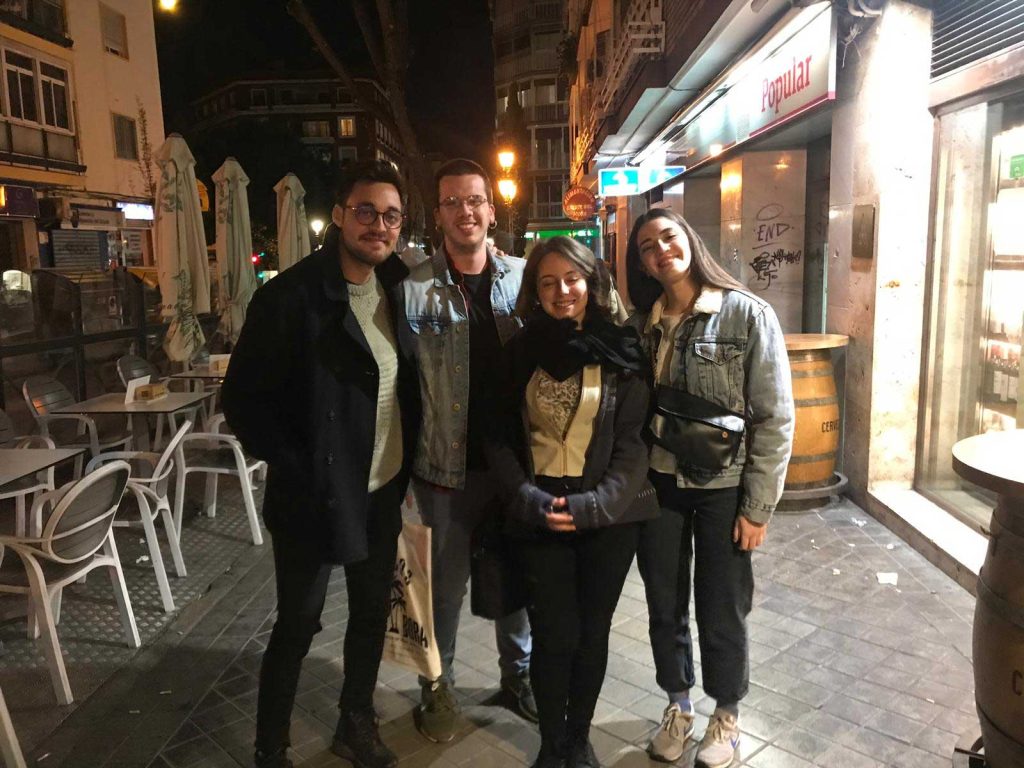

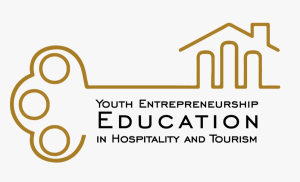
CAPACITY BUILDING FOR ERASMUS+ YOUTH-EPP-1-2018-1-GE- EPPKA2-CBY-EP-PE
The motivation behind the project is related to the fact that in the small regions of each of the consortium partner countries lies a big potential for young people to create their own businesses.
The challenge that our project addresses is how to train young people to develop their businesses or to create businesses in the local community that exploit the touristic potential of the region and enabling them to sell their goods and services using connection with stakeholders from developed regions of the country.
The potential is also in tourism and also in selling other goods and services that are specific to the area. Young people could benefit from these opportunities, but they are not aware of this possibility. They need to become aware of the business opportunities that could be developed in their own community and trained and be supported to start their own businesses.
The project activities aim at reducing the high youth unemployment rates in the partner countries of this project.
There is no doubt that education and integration of youth could improve regions social, demographical, economic and environmentally sustainable development. Local tourism is a main asset that should be exploited for this aim.
Project objectives
The main aim of the project is to raise the capabilities of the partner organizations in providing non-formal training to youngsters that enables them to identify and develop small businesses that make use of the touristic potential of their community.
The project specific objectives are:
1. Offer non-formal education in the field of tourism entrepreneurship for at least 180 young people from disadvantaged groups from rural and small communities of Georgia, Armenia, Ukraine trough organizing non-formal education training workshops at local level in each country;
2. Offer young people competences that enable them to use existing digital methods to promote guest houses and small hotels by creating a handbook available in Georgian, Armenian, Ukrainian and English languages that will be distributed to youth at local level in each country and will also be available online;
3. Empower 48 young people from rural and marginalized areas of Georgia, Armenia, Ukraine, Italy, Spain and Latvia to develop sustainable tourism businesses by creating a space where they will share innovative tourism ideas that make use of the potential of their region and create their own business plans in the tourism by organizing a 10 days youth exchange that will take place in Telavi, Georgia;
4. Foster the cooperation and exchanges and increase the capacity of the partner organization in the field of entrepreneurial education for youth with a focus on tourism practices that make use of the regional potential;
5. Develop innovative non-formal education methodologies and training curricula the field of entrepreneurial tourism for youth tailored to the needs of small rural communities;
Co-working meeting on developing handbook about online tools for promoting Hospitality Business 02.12.2019-08.12.2019, Gyumri, Armenia (5 activity days + travel days)
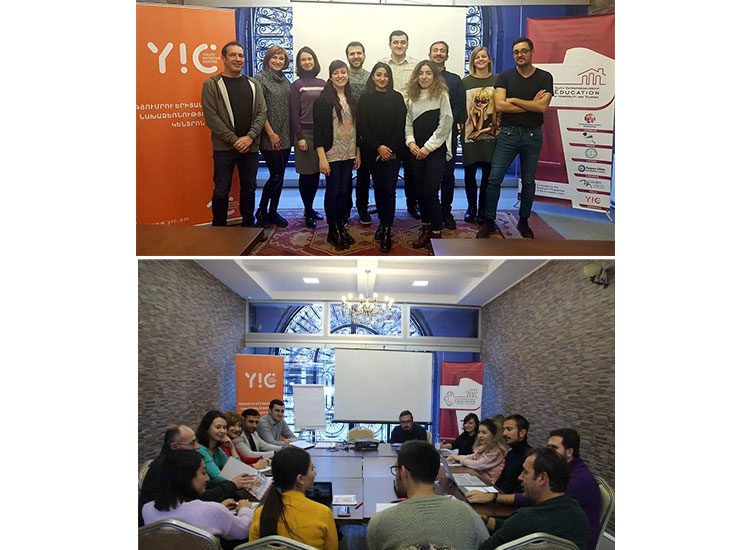
During this meeting we have created a handbook that presents ways to promote a guest house and hostels on online platforms will be developed (such as Booking.com, Airbnb, Hostelworld). We are developing this handbook to offer information to young people on how to promote their touristic business on an international level. The handbook will be translated in each of the partners countries and distributed in local areas and available online on the project website.
The meeting took place during 07.12.2019-13.12.2019, Yerevan, Armenia (5 activity days + travel days), with 2 participants from each partner organization and 1 facilitator, also 1 external expert BOOKING and AIRBNB.
We have developed a new step in our project: A5. Youth Exchange – Empowering Local Communities through Tourism Entrepreneurship – 01.11.2019-10.11.2019, Telavi, Georgia (8 activity days + travel days)
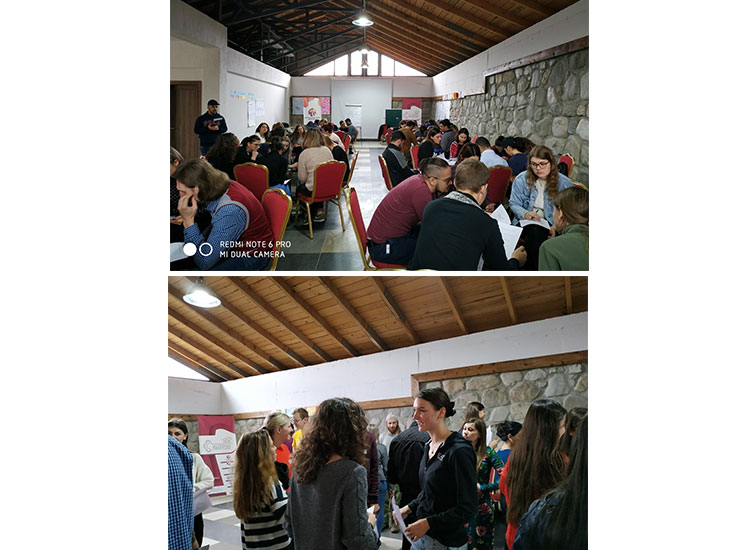
The youth exchange brought together 8 youngsters from each of the partner countries. The aim of the YE has been to empower participants to develop sustainable tourism practices and create a space where they shared innovative tourism ideas that make use of the potential of their region.
The youth exchange offered an innovative practical approach and participants have developed practical abilities, proactive behaviors, creativity and organizational skills. The participants developed their business ideas in tourism during the mobility days.
The youth exchange made use of non-formal education methods. The workshops were implemented by each country group – the young people was supported by the leaders in implementing the workshops. The young people will receive further support from their sending organization in implementing their business plans at the local level.
FINISHED THE WORK IN TELAVI GEORGIA. CONGRATULATE ALL PARTICIPANTS AND SPECIAL MEMBERS OF AIFED: Andrea, Antonio, Leticia and Iván.
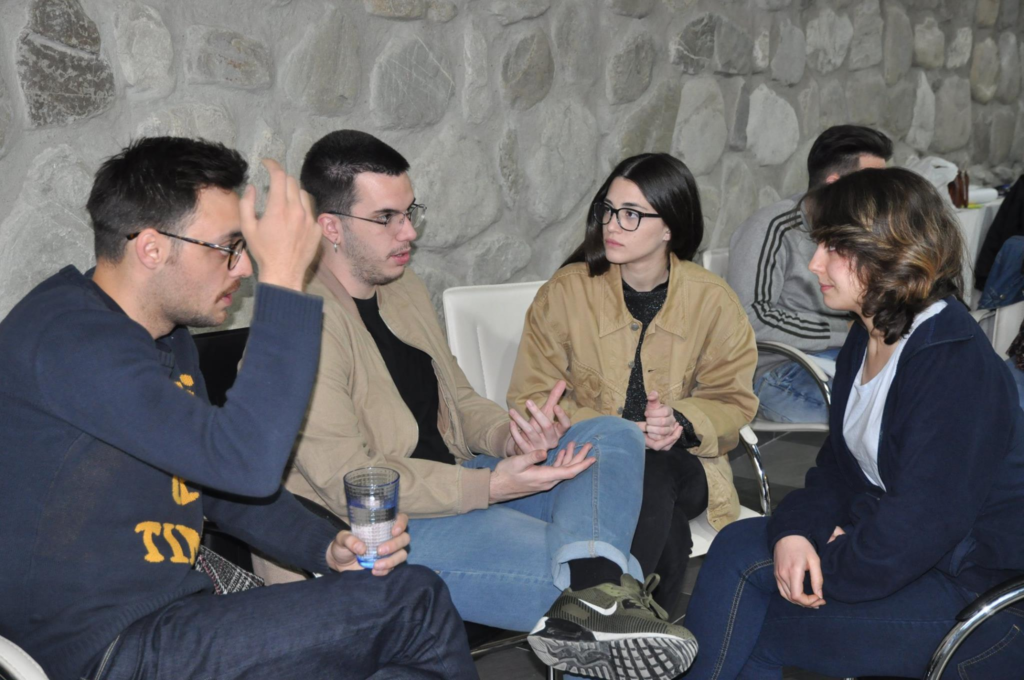
YOUNG MEMBERS OF AIFED TRAVELING TO TELAVI, GEORGIA, FROM MARCH 28 TO APRIL 9, 2019, TO WORK IN THE ELABORATION OF A COURSE ON TOURISM TO TRAIN 240 YOUNG PEOPLE IN GEORGIA, UKRAINE AND ARMENIA WITHIN THE PROJECT “KA2- youth entrepreneurship education in hospitality and tourism”.
